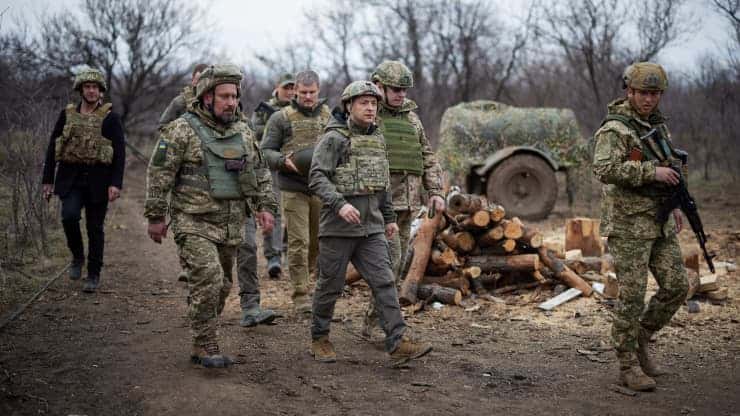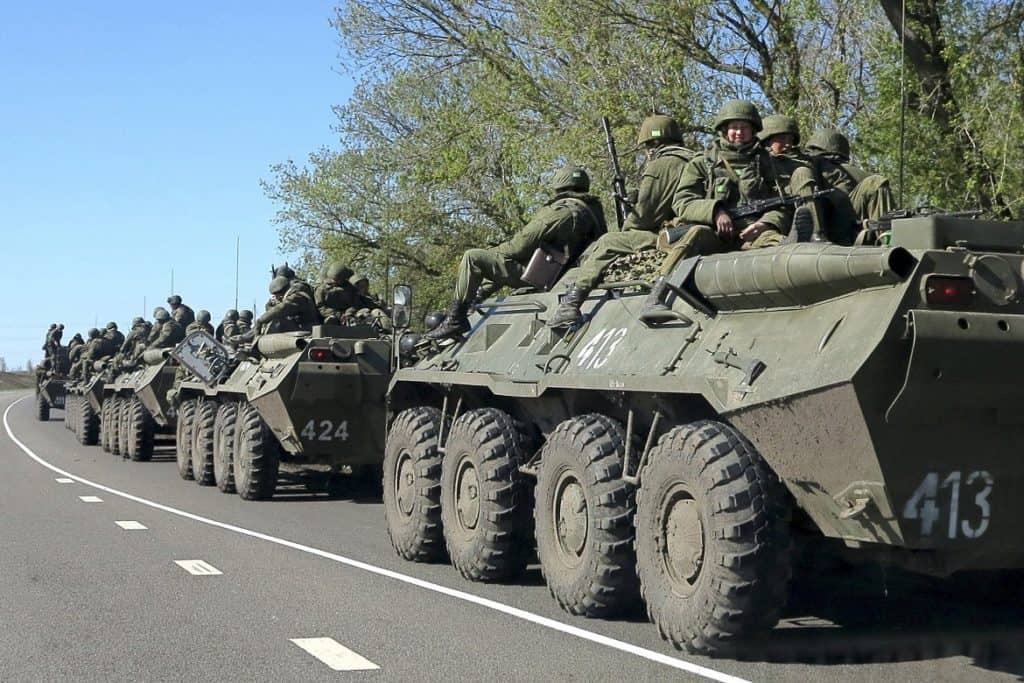By Nikola Mikovic
Russia massively increased its troop presence on the border with Ukraine threating to intervene if Kiev attempts to reclaim the Donbass region that is currently controlled by the pro-Russian forces.

Moscow’s military posturing is a clear sign that the Kremlin, at least at this point, does not plan to return the energy-rich territory to the Western-backed Ukraine. But what else is Russia signaling to the West?
Ever since the war in the Donbass broke out in 2014, Moscow secretly armed and backed pro-Russian forces in the energy-rich region. Indeed, without Russian support, the self-proclaimed Donetsk People’s Republic and Lugansk People’s Republic would have ceased to exist a long time ago. Although the Kremlin officially denied Russian involvement in the Donbass conflict, it is an open secret that the Russian Armed Forces actively helped the local militias who fought against the Ukrainian Army. Such actions resulted in Ukrainian defeat in 2015. The region has been stuck in a positional warfare ever since. Kiev did not attempt to recapture the territory it lost in the summer and autumn of 2014, and the winter of 2015, nor did the Donbass forces capture any new towns.

Has the time come for Ukraine to start a military offensive and regain control of the Donbass? According to reports, since early March Ukraine has been sending tanks, artillery and drones to the turbulent region. There were rumors that another round of hostilities could start in the first days of spring. However, Russia responded by building up troops near the border with Ukraine. According to reports, Russia set up military field camps — comprising artillery, rocket systems, a field hospital, and hundreds of vehicles – some 250 km drive of the Ukrainian border.
Moreover, President Vladimir Putin’s deputy chief of staff Dmitry Kozak said that the outbreak of major hostilities in the Donbass would mark “the beginning of the end” for Ukraine. Still, it is worth noting that such a fear-mongering rhetoric is nothing new for Russian officials. For instance, Putin threatened Ukraine in 2014, and Russian Parliament (Duma) even authorized President to deploy troops to the former Soviet Republic. Russia’s open and direct military intervention in the southeast of Ukraine seemed to be a matter of time. Still, after the incorporation of Crimea into the Russian Federation, the Kremlin decided to play a proxy war against the Western-backed Ukraine in the Donbass, instead of deploying troops and capturing the whole Russian-speaking southeast of the country.
Moscow’s actions in Ukraine resulted in anti-Russian sanctions imposed by the Western countries. In spite of that, Russia and the West kept doing business as usual whenever they had a common interest. Nowhere is it as obvious as in the case of Russia-to-Germany gas pipeline Nord Stream 2. In June 2015, an agreement to build Nord Stream 2 was signed between Russia’s state-owned energy giant Gazprom, Royal Dutch Shell, E.ON, OMV, and Engie. In other words, sanctions-hit Russia signed a multi-billion dollar contract with Western corporations. The project could be completed within a couple of months, unless the United States decides to sabotage it.
There are reports that Amos Hochstein, who served as the special envoy and coordinator for international energy affairs under President Barack Obama and was a close adviser and confidant to then-Vice President Joe Biden, could be appointed as a special envoy to lead negotiations on halting the construction of the Nord Stream 2 pipeline. Could Russian military build-up on Ukrainian border be Moscow’s response to the US actions regarding the Nord Stream 2? Indeed, once completed, this pipeline is expected to deprive Ukraine of billions of dollars in revenue by allowing Russia to circumvent the country when transferring gas to Europe. Also, Russia de facto controls the coal production in the Donbass, which means that energy-poor Ukraine could soon completely lose its role of the regional gas hub. Thus, it is quite questionable if the Kremlin is really interested in invading such a country.
There is no doubt that Ukraine is interested in reestablishing control over the coal mines in the Donbass. However, Russia cannot afford to get defeated and lose the energy-rich territory. Therefore, if Kiev eventually starts a military offensive against the self-proclaimed Donbass republics, Russia is expected to react. Given that the Kremlin has already achieved its military and political goals in 2015, it is not very probable that Moscow will look for a pretext to start a major war. It will rather tend to preserve the status quo.
Author: Nikola Mikovic (Journalist, researcher and analyst based in Serbia. He covers mostly the foreign policies of Russia, Belarus and Ukraine)
(The views expressed in this article belong only to the author and do not necessarily reflect the views of World Geostrategic Insights).
Image Credit: Reuters







